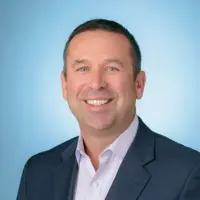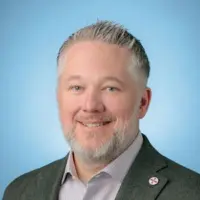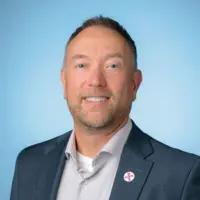I was waiting for 2 hours in almost every appointment I had. I feel they administer unnecessary meds so that they can increase your bill, and not even like that were they able to hire some cleaning staff! It was gross to see some rooms so untidy and stained. Doctors and Nurs ...
About CommonSpirit St. Catherine Hospital – Garden City
CommonSpirit St. Catherine Hospital is located on East Spruce Street in Garden City, Kansas. They provide behavioral health services, including both inpatient and outpatient care options as well as treatment for co-occurring disorders including mental health and substance use.
In addition to substance use disorder treatment, they provide psychiatric crisis intervention and acute mental health stabilization in a hospital setting. Medication management, counseling and support are also available to you for your ongoing recovery.
Education and Relapse Prevention Support
Additional services are provided to adults and adolescents facing co-occurring disorders. They include education and relapse prevention support, which is available to you during your outpatient treatment services. In addition, addiction treatment is part of the integral approach to broader mental and behavioral health treatment
Culturally Sensitive Care for Diverse Populations
It pleases me to know that their approach to treatment is to utilize culturally sensitive care, and to serve diverse populations including non-English speakers by offering services in multiple languages. They often provide tailored services for families and individuals from the local rural and agricultural communities.
Reviews Highlight a Supportive Environment with Professional Staff
Client reviews regarding services at CommonSpirit are positive, noting compassionate staff and professional, attentive care. Other reviews highlight the supportive environment, particularly during crisis situations. They also mention individualized care and effective stabilization services.
Located near the center of Garden City, the community offers easy access to nearby Lee Richardson Zoo, Finup Park and the Garden City Arts Center, with potential resources for outpatient or therapeutic community activities.
Latest Reviews
Rehab Score
Location
Accepted Insurance



Other Forms of Payment
Private insurance refers to any kind of healthcare coverage that isn't from the state or federal government. This includes individual and family plans offered by an employer or purchased from the Insurance Marketplace. Every plan will have different requirements and out of pocket costs so be sure to get the full details before you start treatment.
Self-pay involves paying for treatment out of your own pocket. You can use savings or credit, get a personal loan, or receive help from family and friends to fund your treatment. If you don't have insurance or your insurance plan doesn't cover a specific program, self-pay can help ensure you still get the care you need.
Financial aid can take many forms. Centers may have grants or scholarships available to clients who meet eligibility requirements. Programs that receive SAMHSA grants may have financial aid available for those who need treatment as well. Grants and scholarships can help you pai for treatment without having to repay.
Medicare is a federal program that provides health insurance for those 65 and older. It also serves people under 65 with chronic and disabling health challenges. To use Medicare for addiction treatment you need to find a program that accepts Medicare and is in network with your plan. Out of pocket costs and preauthorization requirements vary, so always check with your provider.
Military members, veterans, and eligible dependents have access to specific insurance programs that help them get the care they need. TRICARE and VA insurance can help you access low cost or no cost addiction and mental health treatment. Programs that accept military insurance often have targeted treatment focused on the unique challenges military members, veterans, and their families face.
Medicaid is a state based program that helps lower-income individuals and families pay for healthcare. Medicaid covers addiction treatment so those enrolled can use their coverage to pay for rehab. When a program accepts Medicaid the client often pays very little or nothing out of their own pocket.
Addiction Treatments
Levels of Care
Residential treatment programs are those that offer housing and meals in addition to substance abuse treatment. Rehab facilities that offer residential treatment allow patients to focus solely on recovery, in an environment totally separate from their lives. Some rehab centers specialize in short-term residential treatment (a few days to a week or two), while others solely provide treatment on a long-term basis (several weeks to months). Some offer both, and tailor treatment to the patient's individual requirements.
Detox treatment varies, but it always involves 24-hour clinical care in Kansas. This supervision is necessary to ensure a safe detox process. Time frame for this level of treatment depends on the severity and type of the addiction. Common time frames include 5-day detox and 7-day detox. Rapid detox programs are also available that are as short as 24 hours. Regardless of the time frame, constant supervision by experienced staff is an essential component.
Treatments
Mental health rehabs focus on helping individuals recover from mental illnesses like bipolar disorder, clinical depression, anxiety disorders, schizophrenia, and more. Mental health professionals at these facilities are trained to understand and treat mental health issues, both in individual and group settings.
Programs
Adult rehab programs include therapies tailored to each client's specific needs, goals, and recovery progress. They are tailored to the specific challenges adult clients may face, including family and work pressures and commitments. From inpatient and residential treatment to various levels of outpatient services, there are many options available. Some facilities also help adults work through co-occurring conditions, like anxiety, that can accompany addiction.
Young adulthood can be an exciting, yet difficult, time of transition. Individuals in their late teens to mid-20s face unique stressors related to school, jobs, families, and social circles, which can lead to a rise in substance use. Rehab centers with dedicated young adult programs will include activities and amenities that cater to this age group, with an emphasis on specialized counseling, peer socialization, and ongoing aftercare.
Serving in the military is both mentally and physically challenging, and can result in trauma that persists even after combat ends. Military programs are tailored to the specific and often complex needs of active duty personnel, veterans, and military families. Clients often access these programs through the U.S. Department of Veterans Affairs (VA).
Clinical Services
Cognitive Behavioral Therapy (CBT) is a therapy modality that focuses on the relationship between one's thoughts, feelings, and behaviors. It is used to establish and allow for healthy responses to thoughts and feelings (instead of unhealthy responses, like using drugs or alcohol). CBT has been proven effective for recovering addicts of all kinds, and is used to strengthen a patient's own self-awareness and ability to self-regulate. CBT allows individuals to monitor their own emotional state, become more adept at communicating with others, and manage stress without needing to engage in substance abuse.
Group therapy is any therapeutic work that happens in a group (not one-on-one). There are a number of different group therapy modalities, including support groups, experiential therapy, psycho-education, and more. Group therapy involves treatment as well as processing interaction between group members.
In individual therapy, a patient meets one-on-one with a trained psychologist or counselor. Therapy is a pivotal part of effective substance abuse treatment, as it often covers root causes of addiction, including challenges faced by the patient in their social, family, and work/school life.
Trauma therapy addresses traumatic incidents from a client's past that are likely affecting their present-day experience. Trauma is often one of the primary triggers and potential causes of addiction, and can stem from child sexual abuse, domestic violence, having a parent with a mental illness, losing one or both parents at a young age, teenage or adult sexual assault, or any number of other factors. The purpose of trauma therapy is to allow a patient to process trauma and move through and past it, with the help of trained and compassionate mental health professionals.
In family therapy, experienced therapists help family members navigate the challenges of addiction by fostering open lines of communication and mutual support. This approach strengthens the family unit and improves the effectiveness of the recovery process.
Staff

Tadd Richert
CFO

Dr. Timothy Bode
Chief Medical Officer

Audre Gvildys Bagnall
Chief Strategy Officer

Brenda Simpson
Senior VP & Chief Nursing Officer

Julie Strittmatter
Chief Human Resources Officer

Brady Small
CIO

Ethan Shumway
VP of Marketing & Communications

Paul Ross
VP for Philanthropy

Sarah Hill
Chief Mission Integration Officer
Contact Information
401 East Spruce Street
Garden City, KS 67846









